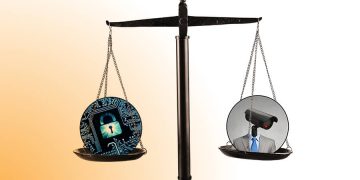Introduction
In recent years, blockchain technology has evolved from a niche innovation to a mainstream solution that is reshaping industries across the globe. While public blockchains like Bitcoin and Ethereum have garnered significant attention, enterprise blockchain has emerged as a powerful tool for businesses looking to enhance efficiency, security, and transparency within their operations. From supply chain management to finance and healthcare, enterprise blockchain promises to deliver cutting-edge solutions to age-old problems.
As we look to the future, the potential of enterprise blockchain is limitless. However, its growth is not without challenges. This article explores the future of enterprise blockchain, the opportunities it brings, and the obstacles that must be overcome to fully realize its potential. With technological advancements, regulatory clarity, and cross-industry collaborations, enterprise blockchain could very well define the next generation of digital business infrastructure.
1. The Evolution of Enterprise Blockchain
1.1 What is Enterprise Blockchain?
Enterprise blockchain refers to blockchain technology that is designed specifically for business applications. Unlike public blockchains, which are decentralized and open to anyone, enterprise blockchains are typically permissioned networks, meaning that access is controlled and only authorized entities can participate. This provides businesses with the security and control they need while still reaping the benefits of blockchain’s transparency, immutability, and efficiency.
Enterprise blockchain systems are built to handle the unique demands of large organizations, including high transaction throughput, fast finality, and scalability. Platforms such as Hyperledger Fabric, Corda, and Quorum are some of the leading enterprise blockchain solutions that are already being used to power business applications across various sectors.
1.2 Key Features and Benefits of Enterprise Blockchain
Enterprise blockchain offers several advantages that make it an attractive option for businesses:
- Immutability: Once data is recorded on the blockchain, it cannot be altered, providing a tamper-proof ledger that increases trust and accountability.
- Transparency: All participants in the network have access to the same data, promoting transparency and reducing the risk of fraud and errors.
- Security: With strong cryptographic techniques and decentralized consensus mechanisms, enterprise blockchains offer heightened security compared to traditional centralized systems.
- Efficiency: By automating processes through smart contracts, enterprises can significantly reduce operational costs and improve business efficiency.
- Interoperability: Many enterprise blockchain platforms are designed to integrate with existing systems, allowing businesses to seamlessly connect blockchain technology with their current infrastructure.
1.3 Growing Demand for Enterprise Blockchain
The demand for enterprise blockchain solutions is rapidly increasing as businesses seek ways to streamline operations, reduce costs, and gain a competitive edge. According to a 2021 survey by Deloitte, over 50% of executives said they were already using blockchain for some form of business process, with another 25% planning to integrate it in the near future.
The use cases for enterprise blockchain are diverse, ranging from:
- Supply Chain Management: Blockchain can track goods from production to delivery, ensuring transparency, authenticity, and reducing fraud.
- Finance and Banking: Banks are using blockchain for cross-border payments, settlements, and to reduce the cost of clearing and reconciliation.
- Healthcare: Blockchain provides secure, immutable patient records and facilitates better data sharing between healthcare providers.
- Legal Industry: Blockchain-based smart contracts can automate legal agreements, reducing paperwork and improving execution speed.
2. The Boundless Potential of Enterprise Blockchain
2.1 Revolutionizing Supply Chain and Logistics
One of the most exciting future applications of enterprise blockchain lies in supply chain management. Traditional supply chains are plagued by inefficiencies, including fraud, delays, and lack of transparency. With blockchain, every step of the supply chain can be documented in real-time, providing businesses with complete visibility over their operations.
Imagine a global supply chain where every product, from raw materials to finished goods, is tracked on a blockchain network. Consumers and businesses alike could verify the authenticity of products, check their origin, and confirm compliance with environmental and ethical standards.
Future Vision: The future of supply chains on blockchain involves smart contracts that automatically trigger actions based on predefined conditions. For instance, a shipment can be automatically released when it reaches a particular milestone, without the need for manual intervention.
2.2 Transforming Financial Services
The financial sector is another area where enterprise blockchain has already started making a significant impact. Blockchain-enabled cross-border payments offer reduced costs and faster transaction times compared to traditional methods, which often involve multiple intermediaries. With blockchain, banks and financial institutions can streamline their operations, provide instant settlements, and improve security.
The emergence of central bank digital currencies (CBDCs) is also a game-changer for the financial world. As governments explore blockchain-based digital currencies, enterprise blockchain could play a pivotal role in ensuring their secure issuance, transfer, and settlement.
Future Vision: Blockchain-based financial systems could eventually eliminate the need for intermediaries like clearinghouses and central banks in certain transactions, making financial services faster, cheaper, and more inclusive.
2.3 Revolutionizing Healthcare
Blockchain holds the potential to revolutionize healthcare by improving data management, privacy, and interoperability. Currently, patient data is often stored in disparate, siloed systems, making it difficult for healthcare providers to access comprehensive patient histories.
Enterprise blockchain can provide a secure and immutable record of patient data that can be easily accessed and shared between medical providers, ensuring more efficient and accurate diagnoses. Moreover, patients can have more control over their medical records, with the ability to grant or revoke access to their data at any time.
Future Vision: In the future, patients could own their health data on the blockchain, giving them more control and enabling a more personalized, efficient healthcare system.
2.4 Advancing Digital Identity Management
Digital identity management is another area where enterprise blockchain could make a profound impact. In today’s digital economy, identity verification is critical for everything from online banking to accessing government services. Traditional identity systems are often vulnerable to data breaches, fraud, and inefficiencies.
Blockchain can provide a decentralized digital identity system, where individuals control their own identity data. By using blockchain for identity management, users can securely share only the necessary information, reducing the risk of identity theft.
Future Vision: Blockchain could replace traditional identity systems with verifiable, self-sovereign identities that are universally accepted across platforms, making digital interactions more secure and efficient.
2.5 Enhancing Governance and Compliance
Enterprise blockchain could also transform the way businesses approach governance and compliance. Blockchain’s transparency and immutability ensure that every transaction, decision, or regulatory report is recorded in an immutable ledger. This can simplify compliance reporting, reduce the risk of fraud, and enhance the auditability of business operations.
Furthermore, the smart contract functionality of blockchain could automate compliance processes, reducing the need for manual oversight and ensuring that companies adhere to regulations in real-time.
Future Vision: As regulatory frameworks around blockchain evolve, businesses could rely on blockchain to streamline their compliance processes, ensuring real-time adherence to regulations and reducing compliance costs.

3. Overcoming Challenges to Realize the Future of Enterprise Blockchain
While the future of enterprise blockchain is promising, several challenges must be addressed to ensure its widespread adoption:
3.1 Scalability
One of the most significant barriers to enterprise blockchain adoption is scalability. As blockchain networks grow, they must be able to handle more users, transactions, and data without compromising performance. The implementation of Layer 2 solutions, sharding, and improved consensus mechanisms will be essential to support large-scale applications.
3.2 Interoperability
In a multi-chain future, interoperability will be crucial for seamless communication between different blockchain platforms. Developing standards and protocols for cross-chain interoperability will enable enterprises to connect various blockchain systems, enhancing the overall utility of blockchain networks.
3.3 Regulatory Clarity
As blockchain becomes more integrated into global business ecosystems, regulatory clarity is essential. Governments around the world need to establish clear regulations around data privacy, cryptocurrency, smart contracts, and tokenization to provide enterprises with the confidence to adopt blockchain at scale.
3.4 Integration with Legacy Systems
Most enterprises already rely on legacy systems that may not be immediately compatible with blockchain technology. Seamless integration of blockchain into existing IT infrastructures will be critical to ensure that enterprises can leverage blockchain without disrupting their ongoing operations.
4. Conclusion
The future of enterprise blockchain is filled with boundless possibilities. From supply chain and finance to healthcare and digital identity, blockchain has the potential to revolutionize industries, drive innovation, and create more efficient, transparent, and secure business ecosystems.
While there are still challenges to overcome—such as scalability, interoperability, and regulatory clarity—the technological advancements in blockchain and its increasing adoption by enterprises suggest that these hurdles will be addressed in the near future. The continued growth of enterprise blockchain will enable organizations to unlock new levels of efficiency, collaboration, and trust, shaping the future of business as we know it.
By embracing blockchain technology, businesses can position themselves to not only meet the demands of today’s digital economy but also to thrive in the next wave of technological transformation. The future is bright for enterprise blockchain, and its boundless possibilities are just beginning to be realized.

















































